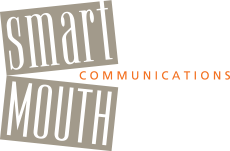 During our recent webinar, “Getting Your Point Across,” we polled participants to find out what they were most concerned or fearful about when giving a presentation. We asked the question two different ways and both sets of answers yielded the same result. By far, the most pervasive concern of the participants was that they might appear or sound “stupid.” I found this so interesting!
During our recent webinar, “Getting Your Point Across,” we polled participants to find out what they were most concerned or fearful about when giving a presentation. We asked the question two different ways and both sets of answers yielded the same result. By far, the most pervasive concern of the participants was that they might appear or sound “stupid.” I found this so interesting!
So interesting for two reasons:
- The reality is that most audience members don’t go into a presentation preparing to judge whether or not a speaker is smart. They go in hoping to get something good or new or useful out of it. In fact, if anything, audience members assume that the person at the front of the room is intelligent.
- Worrying about whether you’ll sound stupid, while understandable, is a misplaced concern for a speaker. Worrying about connecting with and engaging the audience is a far more worthwhile concern. If you don’t connect and engage, it won’t matter how intelligent you sound.
If this concern resonates with you – and you are inclined to feel the way our webinar attendees did – here are some quick fixes to help you connect and engage:
- First, get to know as much about your audience as you can beforehand. That way, you will have some “entry ramps” to use in order to build connection.
- Prepare some relevant questions ahead of time – thoughtful, thought-provoking questions that might help engage your audience, build suspense, or get a dialogue going (if the group is a manageable size). One small caveat is that you’ll need to have answers to these questions at the ready in case your audience goes radio silent on you.
- Keep your points succinct and limit the amount of detail you share. Plan your time so that you can open it up for a quick Q&A after each major point or section of your talk. That way, if your audience wants more detail, they’ll ask for it, but you won’t have killed them with TMI unnecessarily!
- Tell stories. Be self-deprecating. Be open and vulnerable. And always, always be relevant – to your audience and to your topic.
- Prepare ahead so that you are familiar enough with your material that you can forget about your notes – and focus on your audience – once you start talking. (Winging it is one of the best ways to appear or sound stupid. Don’t take that risk.)
- And finally, look at your audience. Really look at them. Yes, I’m talking about eye contact. But I’m also talking about how you look at them – look at them as potential friends you want to make, not as adversaries or a firing squad. Your attitude and energy will rub off on your audience, so keep it positive!
All of this is to say, focus on your audience and the experience you want to give them rather than on how you sound. You’ll survive the event either way, so put your attention on them!
- New Agey Advice for Nervousness - November 3, 2022
- Your Passion Can Go a Long Way Toward Building Connection - October 10, 2022
- Keep stage fright a private matter while you’re speaking on a public stage! - August 11, 2022



